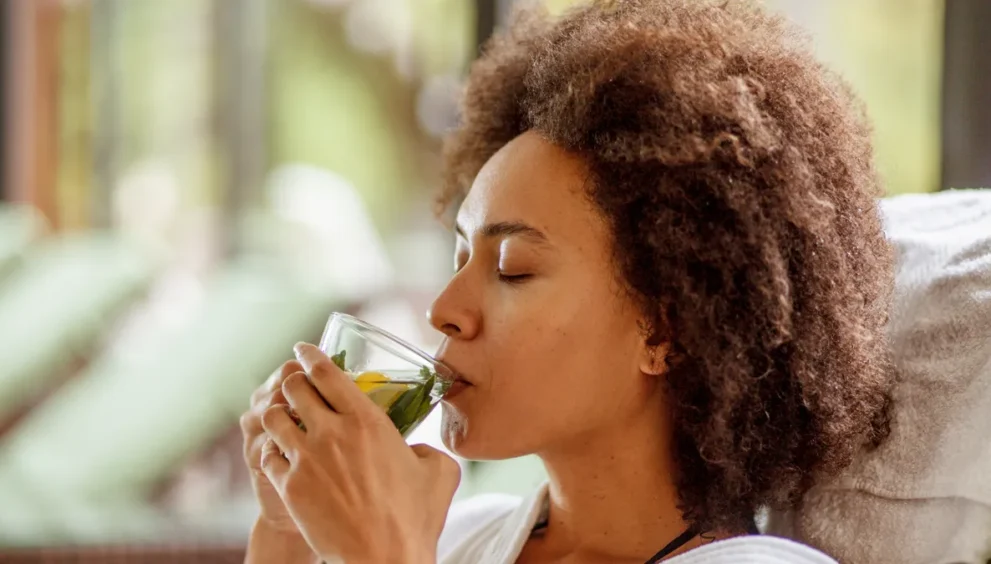Top 10 Natural Remedies for Insomnia That Help You Sleep Tonight

Millions of people toss and turn every night, longing for the restful sleep that seems just out of reach. Insomnia—whether occasional or chronic—can impact every aspect of life, from your mood to your productivity. While prescription medications offer relief, many people are turning to more holistic approaches. If you’re looking for gentle, effective solutions, these top 10 natural remedies for insomnia could be your answer.
These remedies focus on calming the mind, relaxing the body, and creating the right environment for deep, restorative sleep. Whether your sleep troubles are due to stress, anxiety, lifestyle habits, or an overactive mind, you’ll find something here that works for you—starting tonight.
1. Chamomile Tea – The Classic Bedtime Brew
Chamomile has long been used as a soothing herbal tea to help ease anxiety and promote sleep. Its mild sedative effects come from apigenin, an antioxidant that binds to certain receptors in your brain, reducing insomnia symptoms and encouraging sleepiness.
How to Use: Steep one chamomile tea bag or 1 tablespoon of dried chamomile flowers in hot water for 5–10 minutes. Drink 30–45 minutes before bed.
Tip: Create a nightly tea ritual to help signal to your body that it’s time to wind down.
2. Magnesium – The Relaxation Mineral
Magnesium plays a key role in regulating neurotransmitters and melatonin, the hormone responsible for sleep. A deficiency in magnesium is often linked to poor sleep quality and restless nights.
Best Sources: Spinach, almonds, pumpkin seeds, and dark chocolate. Magnesium supplements and topical sprays are also effective.
Recommended Use: Try magnesium glycinate or magnesium citrate 30–60 minutes before bed for best results.
3. Lavender – Aromatherapy for Better Sleep
Lavender is widely known for its calming scent and relaxation benefits. Research shows that inhaling lavender essential oil can slow the heart rate, reduce blood pressure, and lower stress levels—ideal conditions for falling asleep.
How to Use:
-
Diffuse lavender oil in your bedroom.
-
Add a few drops to your pillow.
-
Use a lavender-scented sleep spray or body lotion before bed.
Bonus: Lavender can also reduce mild anxiety, which is a common trigger for insomnia.
4. Valerian Root – The Natural Sedative
Valerian root is a powerful herbal remedy often used for anxiety and sleep disorders. It works by increasing GABA (gamma-aminobutyric acid) in the brain, which has a calming effect on the nervous system.
How to Take: Capsules, tinctures, or teas made with valerian root can be taken 30 minutes to 2 hours before bedtime.
Note: It may take a few days or weeks of consistent use to see full effects. Start with a small dose to see how your body responds.
5. Sleep-Inducing Foods
Certain foods contain natural compounds like tryptophan, melatonin, and magnesium that can help support better sleep. Including them in your dinner or evening snack can make a noticeable difference.
Sleep-Boosting Foods:
-
Cherries (natural source of melatonin)
-
Bananas (rich in magnesium and potassium)
-
Turkey (high in tryptophan)
-
Oatmeal (contains melatonin and complex carbs)
-
Kiwi (contains antioxidants and serotonin)
Pro Tip: Avoid heavy, spicy, or sugary foods close to bedtime, as they may disrupt digestion and interfere with sleep.
6. Meditation and Deep Breathing
Insomnia often stems from an overactive mind. Meditation and mindful breathing techniques are excellent tools for calming racing thoughts and activating the parasympathetic nervous system—the “rest and digest” mode.
Simple Exercise: Try the 4-7-8 breathing method:
-
Inhale through your nose for 4 seconds.
-
Hold for 7 seconds.
-
Exhale slowly through your mouth for 8 seconds. Repeat for 4–8 cycles.
Apps like Headspace and Insight Timer offer guided meditations designed specifically for sleep.
7. Cognitive Behavioral Therapy for Insomnia (CBT-I)
Unlike quick fixes, CBT-I targets the root behavioral and psychological causes of insomnia. This evidence-based therapy helps you develop better sleep habits and change negative thoughts about sleep.
What it Involves:
-
Keeping a sleep diary
-
Setting a consistent sleep-wake schedule
-
Challenging unhelpful sleep beliefs
-
Learning relaxation techniques
Why It Works: Studies show CBT-I can be more effective than sleep medication in the long term and has lasting benefits without side effects.
8. Create a Sleep-Friendly Environment
Sometimes, it’s not your body or mind keeping you up—it’s your surroundings. Your bedroom environment plays a major role in your ability to fall and stay asleep.
Optimize Your Sleep Space:
-
Keep your bedroom cool (60–67°F or 16–19°C)
-
Block out light with blackout curtains or a sleep mask
-
Reduce noise with earplugs or white noise machines
-
Remove screens and electronic devices that emit blue light
Upgrade: Invest in a comfortable mattress and pillows that support your preferred sleeping position.
9. Establish a Bedtime Routine
A consistent nightly routine signals your brain that it’s time to wind down. This can help your body shift from active mode to restful mode naturally.
Ideas for a Calming Routine:
-
Dim the lights an hour before bed
-
Read a physical book or write in a journal
-
Take a warm bath or shower
-
Do gentle stretches or yoga
Avoid: Checking emails, scrolling social media, or watching intense shows late at night—they stimulate the brain and make it harder to relax.
10. Natural Sleep Supplements
In addition to herbs like valerian and chamomile, there are other natural supplements that support sleep without the grogginess of prescription drugs.
Top Options:
-
Melatonin: A hormone that helps regulate your sleep-wake cycle; especially helpful for jet lag or shift work.
-
L-theanine: An amino acid found in tea leaves that promotes relaxation and reduces anxiety.
-
GABA: A neurotransmitter that quiets the nervous system and promotes calm.
Caution: Always consult a healthcare provider before starting any new supplement, especially if you’re on medication or have a health condition.
Final Thoughts
If you’re tired of restless nights and groggy mornings, know that you’re not alone—and there are gentle, effective ways to find relief. These top 10 natural remedies for insomnia offer a safe, holistic approach to getting the rest your body and mind need.
Start by choosing one or two remedies that resonate with your lifestyle. Maybe it’s sipping chamomile tea, diffusing lavender, or trying a guided meditation. Consistency is key, so give each approach some time to work its magic. With a little patience and intention, you can finally enjoy peaceful, rejuvenating sleep—starting tonight.


 English
English 

































































































































































































































































































































































































































































































































































































































































































































































































































































































































































































































































































































































































































































































































































































































































































